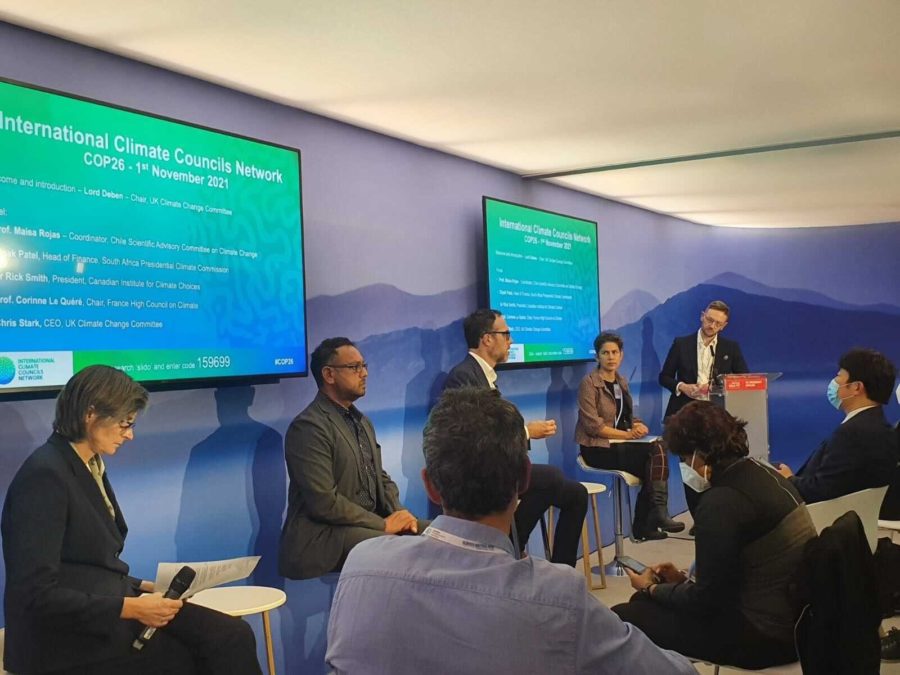World-leaders, policy-makers and negotiators from across the globe have converged on Glasgow for the United Nation’s 26th Conference of the Parties (COP26). Among the key objectives of COP26 will be to a) raise ambitions on climate action through countries’ nationally determined contributions (NDCs) to reach net-zero by 2050 (including ambitious 2030 targets), and b) mobilize the financial resources to mount strong efforts to both mitigate climate change itself, as well as adapt to its impact.
However, while ambitious climate targets are critical to avoid the worst consequences of climate change, these targets can only be met with bold and effective climate policies and strategies. A recent study by Corine Le Quéré and colleagues (2019) demonstrated a positive correlation between the number of climate and energy policies in place, and the level of emission reductions. Yet, not all climate policies and strategies are equally efficient or effective. Climate policies and measures need to be evidence-based and grounded in robust analysis of the benefits and cost of different pathways, to deliver the required emissions reductions for both the near- and long-term. For this reason, independent climate advisory bodies play a crucial role in informing climate policies and measures on the basis of evidence-led advice, as well as to provide an independent evaluation of progress and build the economic case for ambitious climate action.
While the UK Climate Change Committee (UK CCC) dates back to inauguration of the UK Climate Change Act in 2008, many national climate councils of different forms and remit have been established across the world in the last years, as an increasing number of governments recognise the paramount importance of placing scientific rigor and evidence at the heart of climate policies and measures. Many of the climate policies and measures adopted across countries will need to be tailored to different local challenges and political contexts. Yet, climate change is a global (and often, a transboundary) challenge which will require unprecedented level of international collaboration to leverage wider resources and increase knowledge base and skillsets.
This is why national climate councils from over 18 countries officially launched the International Climate Council Network (ICCN) at the “Making ambition count – the role of Climate Councils in turning commitments into actions” event on 1st November at COP26. The ICCN will provide an ongoing platform to strengthen collaboration between Climate Councils and support the development of new Climate Councils around the world, in a collectively managed, open and inclusive manner. The network is the first of its kind, bringing together councils from every continent, including Australia, Chile, Costa Rica, Canada, Denmark, Guatemala, France, Finland, Ireland, Mexico, New Zealand, South Africa, Sweden and the UK.
The ICCN’s official launch is the culmination of a work programme coordinated by the UK CCC in partnership with the Swedish, Chilean and Finnish climate councils (which together formed the founding ICCN Steering Committee), with the support of the UK Foreign Commonwealth & Development Office’s Science & Innovation Network (FCDO-SIN), to build a formal collaboration with other Climate Councils from around the world in support of COP26 objectives. The day-to-day running of the ICCN has been passed to the Canadian Institute for Climate Choices and Net Zero Advisory Body, French High Commission on Climate Change and Guatemala National Council on Climate Change for the coming year, with the support of the UK CCC.
Alongside, the ICCN’s inaugural launch, the UK CCC, the Swedish Climate Policy Council and Chilean Scientific Advisory Committee on Climate Change jointly published a research paper. This was undertaken by the World Research Institute (WRI) and co-funded by the FCDO-SIN. It highlights the role of Climate Councils in supporting climate action around the world and identified some of the key factors that underpin their effectiveness. Together with an earlier work by the Ecological Institute, the WRI report played a role in helping to shape some of the core shared principals that form the backbone of the ICCN.
In the years to come, as the world looks to take forward the commitments made at COP26, the role of climate councils will continue to grow in importance to meet the increasing need for evidence-based policy making, and strengthen the links between research and practice or policy. The ICCN will accelerate and amplify the efforts of individual climate councils, helping them to collectively make a significant impact in the journey to net-zero.
This article is the third in the blog series: The Road To COP26: The Role of Science & Innovation

